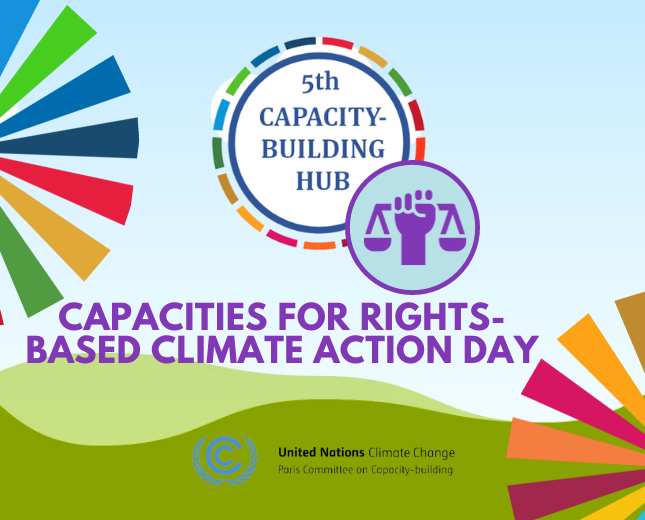Recording
Organizers
This event was hosted by SwedBio, at Stockholm Resilience Centre, at Stockholm University, Soka Gakai International (SGI), Local Governments for Sustainability (ICLEI Africa), Women for Biodiversity (W4B), Climate and Development Knowledge Network (CDKN),Friends World Committee for Consultation (FWCC), International Land Coalition (ILC), Secretariat of the Convention on Biological Diversity (SCBD), Asia Indigenous Peoples Pact (AIPP), SwedWatch, WRI Brasil, Amazonians for Climate Network (RAC), Amazonia Vox, Global Youth Biodiversity Network (GYBN), and YOUNGO
Background
Our organizations are coming together to promote environmental justice, human rights, and participatory approaches in addressing climate change and biodiversity loss. We recognize the critical role of rights holders, particularly those from regions like the Amazon, in the fight against these global challenges. We are working together with rights holders and duty bearers to keep learning from each other, strengthen and develop respective capacities to engage in climate and biodiversity actions more effectively. This capacity-building event at COP28 facilitated knowledge exchange between various stakeholders, including states and business representatives, and empower rights holders with tools, practices, and best practices, grounded in people-centered, rights-based, participatory approaches.
Objectives
-
Highlighted the vital role of rights holders and discuss ways to protect and support their work.
-
Emphasized the connection between land rights and solutions to the climate and biodiversity crises.
-
Showcased best practices from the Global South that can be scaled up for more significant impact.
-
A report came out of the discussion with the audience, highlighting tools, examples, practices that further show how to implement a human rights-based approach to climate and biodiversity action.
Structure
|
Time
|
Segments
|
|
16:15-16:20
|
Introduction
Welcome and brief overview of the session’s goals and structure by the moderator
|
|
16:20-16:50
|
Panel Discussion
Panelists representing various perspectives and regions, including the Amazon, will share tools, practices, examples of participatory and human rights-centered approaches in climate and biodiversity action
|
|
16:50-17:10
|
Interactive Q&A
A moderated Q&A session where the audience can pose questions to the panelists and discuss / roundtable type of discussion with the audience
|
|
17:10-17:15
|
Closing Remarks
- Cristiane “Krika” Fontes, WRI Brazil, Executive Director
- Tristan Tyrrell, Secretariat of the Convention of Biological Diversity
|
Speakers
|
Name
|
Affiliation/Organization
|
|
Ravadee Prasertcharoensuk (video message)
|
Director of Sustainable Development Foundation, Thailand
|
|
Josefa Tauli
|
Global Youth Biodiversity Network (GYBN)
|
|
Braulina Baniwa
|
Articulação Nacional das Mulheres Indígenas Guerreiras da Ancestralidade (ANMIGA), New Economy for the Brazilian Amazon (NEA-BR), Author and Indigenous Researcher
|
|
Caroline Medeiros Rocha Frasson
|
Climate policy and climate justice specialist, co-Founder of Amazonians for Climate Network (RAC) and member of Amazonia Vox.
|
|
Pablo Frere
|
Executive secretary of Redes Chaco & focal point for the World Alliance for Mobile and Indigenous People, the global alliance of pastoralists, International Land Coalition
|
|
Lakpa Nuri Sherpa
|
Asia Indigenous Peoples Pact
|
Moderator
Nadia Sitas, South-South North, Climate and Development Knowledge Network & IPBES Coordinating lead author of Nexus Assessment
Key outcomes
- Human rights are central to addressing biodiversity loss and climate change. This includes legal recognition and land right. We need to ensure to avoid negative consequences (lands, culture, way of life, knowledge, etc.) at all cost in the name of the greater good.
- The importance of supporting community to build resilience of their own – Solution for the local level comes from the locals.
- Effective engagement in negotiation process means capacity building of youth, including to understand systemic nature of issues, consultation, campaigning, partnership, action
- We need to shift our way of knowing - The importance of the recognition of different knowledge systems.
Resources
Presentation slides
Discussion paper on ‘Adopting a human rights-based approach to biodiversity and climate action’
